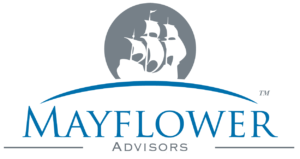
As the end of 2023 draws near, those responsible for their company 401(k) plan have much to consider.
With a combination of standard annual tasks and new SECURE Act provisions on your plate, we are here to help you.
This article is a helpful guide for wrapping up 2023 smoothly! We will dive into those end-of-year 401(k) tasks that require your attention including plan design review, SECURE Act preparation, Required Minimum Distributions (RMDs), employee deferrals and more.
Annual Review
An annual review is a great time to kick the tires and make sure your plan is still working well. Assessing key demographics such as participation, deferral rates, assets allocation and loan activity can help shine light on opportunities for the plan. Updates could be necessary to keep your plan in compliance, boost performance and/or better suit your organizational needs.
Safe Harbor Considerations
If you are considering adding or changing your company match formula, now is a good time to discuss it before December 1st. Both new and existing plans need to finalize any decisions on safe harbor match changes before the deadline. This will allow sufficient time to distribute the required notices.
Long-Term, Part-Time Employees
Starting January 1st, 2024, new rules go into effect for long-term, part-time employees. The SECURE Act requires 401(k) plans to allow employees who have worked 500 hours or more in the past three consecutive 12-month periods to contribute to the plan. It’s important that you track and record the correct hours.
Required Minimum Distributions
The annual deadline for paying out RMDs is December 31st, so now is the time to get ahead. Take this time to review the list of affected participants. This includes current and terminated participants over the age of 72 (73 if the person reached age 72 after December 31st, 2022).
Bonuses
If paying year-end bonuses, you might consider checking the definition of compensation in your document. If bonuses aren’t included in this definition, there won’t be any deductions for 401(k) or 403(b) contributions from the bonus. However, if the plan counts all types of pay as compensation, contributions should be taken from the bonuses.
Opt-Out Records
While the decision to participate in the retirement plan rests solely with each employee, it is your responsibility to keep accurate documentation. It’s essential to keep clear records, indicating that employees were given the choice to defer their participation. Furthermore, any instances where an employee has chosen to defer 0% of their earnings must be meticulously recorded.
Expense Account
If you have an ERISA spending account, also known as an ERISA bucket or plan expense reimbursement account, review it before the year ends. This account is typically used to cover plan-related costs. However, if there is leftover money in the account, it is often distributed back to the participants. Your plan document should provide details on how this surplus revenue is distributed. Some plans distribute the excess to all participants, while others only disburse it to those who invest in funds with revenue-sharing agreements.
Required Notices
Remember, December 1st is the deadline for annual participant notices. These notices inform employees about their 401(k) plan’s operations, investment options and fees. Ensuring timely distribution helps avoid penalties and maintains your plan’s tax benefits.
Lean on Your Advisor
The end of the year is an exciting time, but it can also be stressful. That is why we work closely with our clients to tackle these end-of-year tasks. Whether it’s questions about required notices, compliance deadlines, plan design review or anything else, we’re here to help.

Lou Chong
CFP®, AIF®, CRPC®, NQPATM
Vice President, Senior Plan Consultant
Phone: (617) 259-1767 | Fax: (617) 259-1768
lou.chong@mayfloweradvisors.com
Mayflower Advisors
265 Franklin Street, Suite 401
Boston, MA 02110
(617) 259-1767
www.mayfloweradvisors.com
This information was developed as a general guide to educate plan sponsors and is not intended as authoritative guidance or tax/legal advice. Each plan has unique requirements, and you should consult your attorney or tax advisor for guidance on your specific situation. Securities offered by Registered Representatives through Private Client Services, Member FINRA/SIPC. Advisory products and services offered by investment advisor representatives through Mayflower Advisors, a registered investment advisor. Private Client Services and Mayflower Advisors are unaffiliated entities.
©401(k) Marketing, LLC. All rights reserved. Proprietary and confidential. Do not copy or distribute outside original intent.
